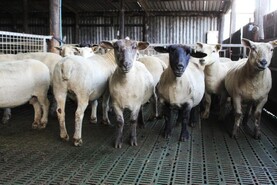Some 500 dairy farm assistant work permits have been granted in a bid to alleviate the labour shortage facing the sector.
Under the permits, new dairy farm assistants recruited from abroad must be paid a minimum salary of €30,000, based on a 39-hour work week.
The measure for the dairy sector was announced by Minister of State for employment Damien English on Friday and follows a submission from the Irish Creamery Milk Suppliers Association (ICSMA) and Farm Relief Services (FRS).
The 500 permits will help alleviate the labour shortages being faced by dairy farmers, who have struggled to source workers locally, ahead of the busy spring-calving period.
‘Necessary labour’
Commenting on the move, Minister for Agriculture Charlie McConalogue said he is “acutely aware of the staffing challenges on some farms and we are moving to address this”.
“Spring can be a very challenging time on dairy farms and this announcement today will allow dairy farmers time to arrange to have the necessary labour in place for the busy calving season.”
His colleague Minister of State for farm safety Martin Heydon also welcomed the additional permit announcement and highlighted that “balancing workload with labour supply is critical to addressing work-life balance for farmers and reducing the risk of farm safety incidents”.
‘Welcome development’
ICMSA president Pat McCormack described the additional permits for the dairy sector as a “very welcome development” and suggested that there should be “no hold-up now for those who wish to apply for visas for non-EU nationals”.
“These individuals are going to be needed in six weeks’ time. The clock is ticking and we need to get these processed, turned around and issued within that timeframe,” he said.
McCormack called for a dedicated section within the Department of Enterprise to “deal with the agricultural- and dairy-related applications for these visas”.
He described how the ICMSA and FRS jointly commissioned a report from economist Jim Power that set out a business case for the new permits and suggested that the outcome demonstrates the “kind of results that can be achieved when Government and industry collaborate on the basis of workable solutions to clearly identified problems”.






 This is a subscriber-only article
This is a subscriber-only article










SHARING OPTIONS: